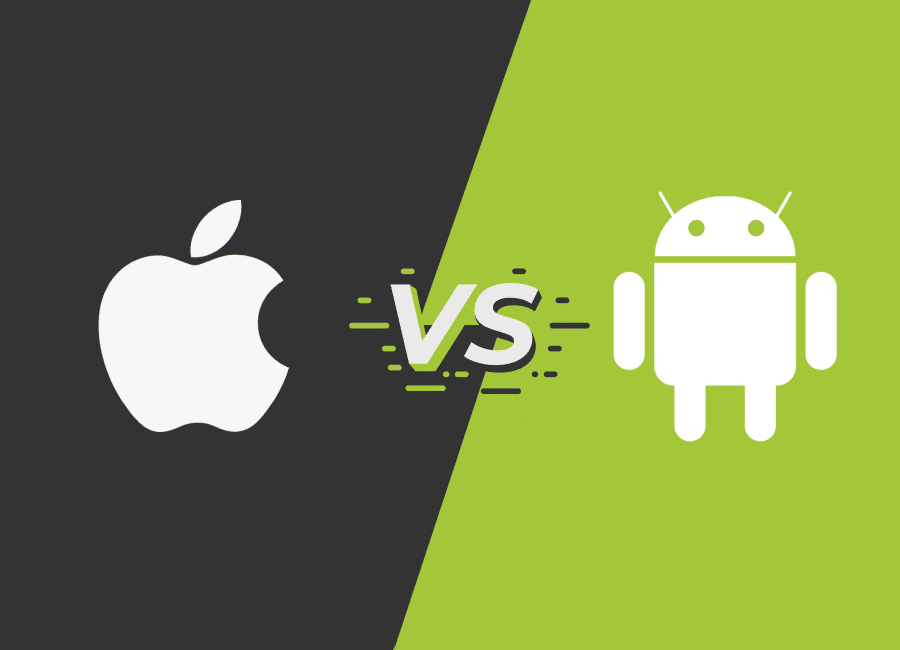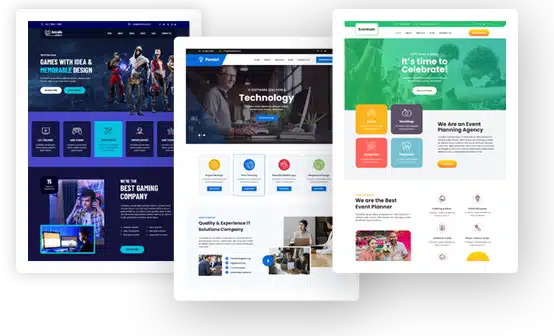IOS vs. Android: Which Platform Should You Choose for Your Mobile App?

The comparison between IOS and Android is an old-school debate with no possible answer that satisfies everyone. Both IOS and Android are huge ecosystems with over 5 million combined mobile apps on their respective stores.
IOS is the operating system for Apple smartphones, while Google, the renowned tech giant, owns Android.
There are both Android and IOS apps making millions in revenue annually. Then there are apps that couldn’t even manage to cover their development cost. Since there is no clear winner overall, it can be troublesome for laymen to choose the right platform for their mobile app.
If you are also confused between these platforms and can’t decide on the platform for your mobile app, we can help!
This blog will highlight the key differences between the two platforms. Moreover, you will be able to choose the platform for your mobile app according to your requirements. So without further ado, let’s get started.
Android App Development
Android app development is the practice of building dedicated mobile apps for Android users. Android apps are published on the Google Play Store, which currently has over 2.87 million mobile apps.
Android has been the most famous mobile operating system since it came out. Currently, nearly three fourth of the global population uses Android devices across 189 countries.
As far as the tech stack is concerned, Java has been consistently used for building Android apps. However, emerging technologies are consistently making their way into the market. And if you hire Android app developers today, they will prefer using a mix of Flutter and Kotlin to build your app.
Below are some of the key benefits of building an app with Android:
Hardware Compatibility
Android offers great flexibility in terms of hardware. You won’t likely run across any hardware compatibility problems because these apps are distributed in a way that they may be used on almost any Android device. Also more adaptable is the Android development process.
Through its reliance on Java, this platform also makes development easier. Since Java is a very flexible programming language, developers can create Android apps on any platform, including Windows, Mac OS, and Linux.
The Android Ecosystem
Creating an Android app means building an iOS app for the ecosystem of mobile devices, laptops, desktops, VR headsets, wearable devices, and much more. While this feature can sometimes cause difficulties in terms of design and functionality, it also enables developers to integrate their application with Television, cars, doors, air conditioners, and much more.
Publishing
Publishing an Android app on the Play Store is a no-brainer. Play Store charges a one-time $25 registration fee to publish an app, and takes anywhere between one to four weeks to approve the submission request.
Back in 2019, publishing on Play Store was relatively easier than now. It used to take 6 – 8 hours to publish an Android app. Since more and more developers are inclined to publish on the Play Store, Google revised its publishing policies to streamline the publishing process.
However, the current publishing policies are still relatively more straightforward than IOS.
IOS App Development
IOS app development is the process of building dedicated mobile apps for Apple users. These apps are published on the App Store, which is currently home to nearly 2 million IOS mobile apps.
Although the global market share of IOS is nearly 27 percent, countries like America, Canada, and most developed countries of Europe have more IOS users than any operating system. The IOS market share in the United States is more than 60%, while Android accounts for only 40% of mobile devices.
Below are some key features that come with building an app with IOS:
Performance
Apple never compromises on the quality! Android may offer more functionality, but when it comes to performance, there’s no match to IOS.
The IOS platform is fast, secure, and easy to use, with enhanced features and functionality to deliver an exceptional user experience.
The Apple Ecosystem
Depending on the user, this iOS feature can be both a virtue and a vice. The integration of Apple gadgets like Mac, IPad, Apple watches, and all the other apple devices balances out the constraints that the Apple ecosystem has placed on connectivity with non-Apple devices.
This feature can be a favorable advantage if most of your target audience uses Apple devices, including smartphones, iPads, Mac, and smartwatches.
Intuitive User Interface
Apple has set up high standards regarding the user interface design of the IOS apps that every app owner must follow to publish on the App Store.
While some developers view these guidelines as restrictions to going the extra mile for creativity, these standards usually ensure unparalleled user experience.
Which One Should You Choose?
Both IOS and Android have their own merits and demerits. In order to choose the right platform, you need to know who your target audience is and what operating system they use. For instance, if you want to make an ecommerce mobile app in LA, you should hire an android app development company. But if your target market is Asia or Africa, you should go for Android app development as more people use Android in those regions.
But what if your target audience is scattered across multiple platforms, and you can’t neglect any of those? Then you can opt for cross-platform mobile app development!
Cross-Platform Mobile App Development
Cross-platform mobile app development refers to building separate websites for both IOS and Android using a single piece of code.
In cross-platform app development, developers use programming languages like Flutter, React Native, or Xamarin to code. This code is then compiled into native libraries of both IOS and Android. Cross-platform development is helpful if you don’t know your target audience or if they are scattered on multiple operating systems and you can’t afford native apps for each platform.
Let’s say NYC is your target market. You can hire app developers in New York for the iOS version of your app only. But if your target market involves India, China, or Africa, you can’t neglect them as they make up many of your potential users. Thus, you will need an iOS and an Android version for your app if you want to reach out to every region.
Wrapping Up…
From what we have discussed above, we can simply say that there is no such thing as a right or wrong platform. It all boils down to your target audience and your budget.

